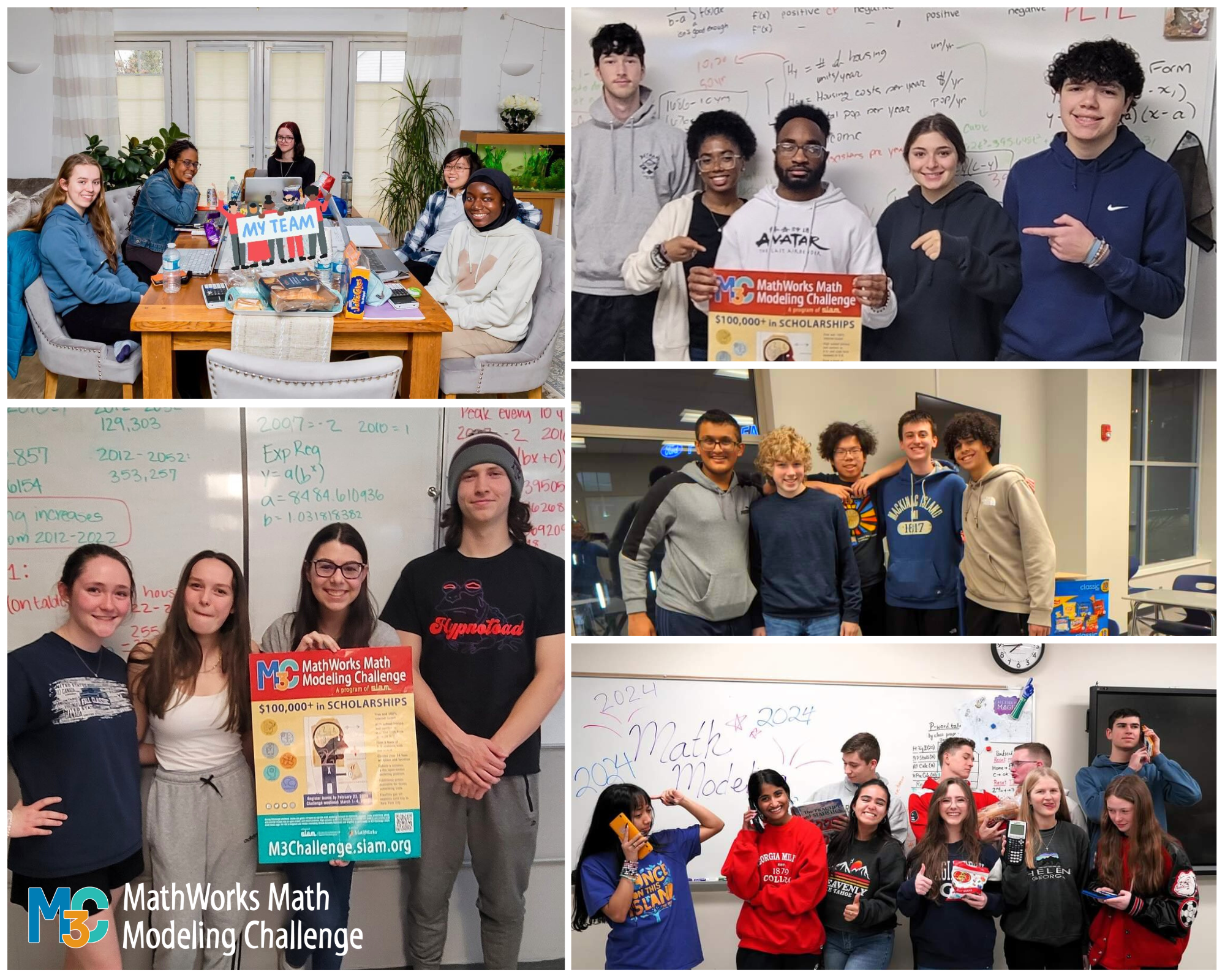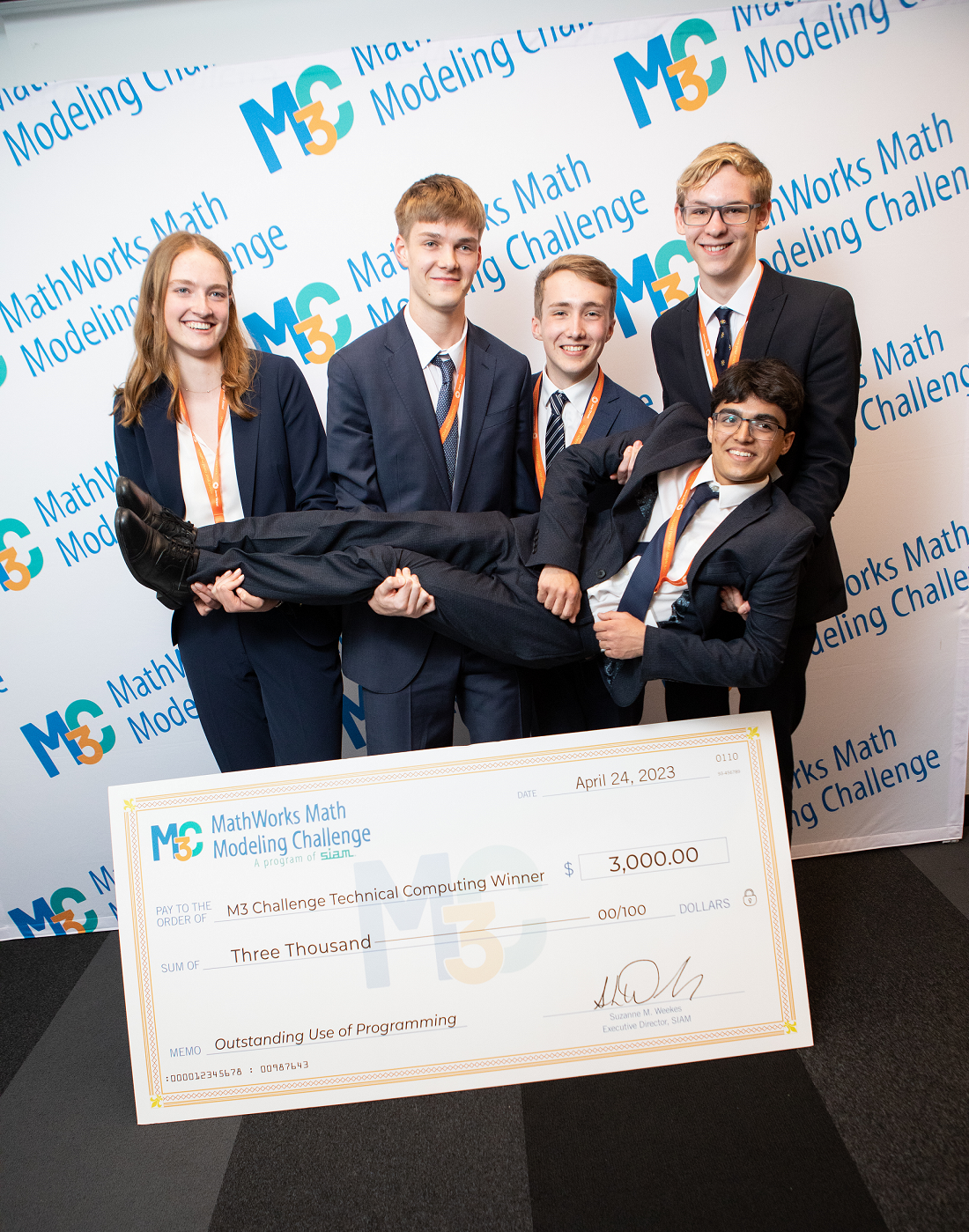Judge Commentary
Kelly Black, Ph.D., Department of Mathematics, University of Georgia
The focus of MathWorks Math Modeling Challenge 2019 was the use and abuse of substances such as nicotine, marijuana, alcohol, and unprescribed opioids. The specific questions were about predicting the spread of nicotine use due to vaping, modeling and predicting the likelihood that certain individuals will use certain substances, and assessing the broader impacts of substance abuse. As we have come to expect, the teams did a tremendous job of exploring a complex topic and providing insightful analyses. The primary goal of M3 Challenge is to provide students with a context to work in small teams, explore an open ended question, engage in the full process of bringing together disparate mathematical ideas, and share these ideas in written form. The judges recognize that it is the teachers and coaches who help prepare teams for this event and provide the tools, structure, and support that make this a meaningful experience. Thank you! This event has grown, and it is because of the dedication of the coaches and teachers that it is also maturing. We initially saw large gains in the quality of the students’ submissions. We continue to see improvements, but they are more subtle and in some ways more substantive. These continued gains are the direct result of the efforts of the teachers and coaches. This commentary is provided as a way to give insight into some of the things that judges noticed and wish to share. It is our hope it can be used as one of many resources. In this commentary, I will discuss my personal observations about each of the three questions and the role of scientific computing, and I will make some general comments about modeling and technical writing. Each of these topics is discussed in the following sections in order.





